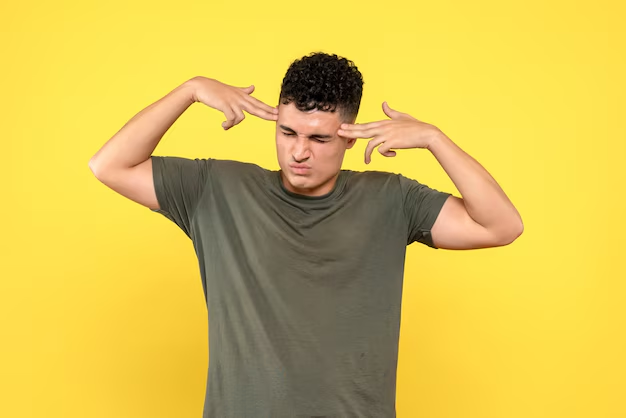Understanding the Connection Between Anxiety and Tinnitus: What You Need to Know
Tinnitus, often described as ringing in the ears, affects millions of people worldwide. For those who experience it, tinnitus can be a frustrating, persistent condition. Meanwhile, anxiety is another common issue many grapple with, characterized by a constant state of worry and fear. But is there a link between these two conditions? Can anxiety cause tinnitus? Let’s dive deeper into this topic to better understand the interplay between anxiety and tinnitus and what it means for those affected.
What is Tinnitus?
Tinnitus is not a disease but a symptom of an underlying condition. It's described as the perception of sound when no actual external noise is present. This sound can be different for each person, ranging from ringing, buzzing, hissing, to even roaring.
Types of Tinnitus
- Subjective Tinnitus: Only you can hear the noise. This is the more common form of tinnitus.
- Objective Tinnitus: Rare and can be heard by a doctor during an examination.
Common Causes of Tinnitus
- Hearing Loss: Age-related hearing decline or noise-induced damage.
- Ear Infections: Can cause temporary tinnitus.
- Exposure to Loud Noise: Short-term or prolonged exposure can result in tinnitus.
- Medication: Some drugs can cause or exacerbate tinnitus.
Understanding the origins and triggers of tinnitus is crucial in managing its effects, especially in relation to stress and anxiety.
Anxiety: An Overview
Anxiety is a natural response to stress, and sometimes, feeling anxious is normal. However, when anxiety becomes chronic, it can interfere with daily life.
Symptoms of Anxiety
- Restlessness or feeling tense
- Rapid heart rate
- Sweating
- Fatigue
- Difficulties concentrating
It’s essential to recognize these symptoms not only for addressing anxiety on its own but also for understanding potential connections to tinnitus.
The Link Between Anxiety and Tinnitus
Now that we've covered the basics of both conditions, let's explore their connection.
Shared Pathways of Anxiety and Tinnitus
Considering that both anxiety and tinnitus affect similar regions in the brain, particularly those associated with sound perception, mood, and stress response, it's not surprising that one might influence the other:
- Stress Response: Anxiety can heighten the stress response in the body, leading to increased perception and severity of tinnitus.
- Cognitive Load: The constant state of worry seen in anxiety can increase attention on tinnitus, making it more noticeable.
Anxiety-Driven Tinnitus
In some cases, anxiety might act as a trigger for tinnitus. When stress levels rise, individuals might experience tinnitus more acutely:
- Blood Pressure: Anxiety can increase blood pressure, which may enhance ear ringing.
- Muscle Tension: Stress results in muscle tension, particularly around the neck and jaw, potentially aggravating tinnitus.
Coping with Tinnitus and Anxiety
Managing these intertwined conditions requires a holistic approach. The goal is to minimize anxiety's impact on tinnitus and improve quality of life.
Strategies for Managing Anxiety-Induced Tinnitus
Stress Reduction Techniques
- Mindfulness and Meditation: Regular practice can reduce anxiety and its perception.
- Deep Breathing Exercises: Helps calm the nervous system and reduce stress.
- Physical Exercise: Regular activity can reduce anxiety levels significantly.
Cognitive Behavioral Therapy (CBT)
CBT is an effective psychological treatment that helps individuals reshape their thought patterns, reducing the anxiety associated with tinnitus. Consider seeking a licensed professional to explore this option.
Sleep Hygiene
Lack of sleep can exacerbate both anxiety and tinnitus. Establish a routine that promotes quality sleep:
- Limit screen time before bed.
- Create a comfortable, dark sleeping environment.
- Avoid caffeine and heavy meals in the evening.
Long-term Solutions and Lifestyle Changes
While immediate strategies are crucial, long-term approaches can also provide relief.
Hearing Aids
For those with hearing loss-related tinnitus, hearing aids can help amplify external sounds, reducing the prominence of tinnitus.
Healthy Diet
A healthy diet aids overall mental health, potentially reducing anxiety levels. Aim for balanced nutrition rich in vitamins and minerals.
Limiting Stimulating Substances
Caffeine, nicotine, and alcohol can worsen tinnitus or cause anxiety spikes. Consider reducing or eliminating these substances from your daily routine.
When to Seek Professional Help
If tinnitus or anxiety severely impacts your life, consulting a healthcare provider is essential. They can offer tailored advice and treatment, ensuring comprehensive care.
While no universal cure exists for tinnitus, the combination of managing anxiety can significantly reduce its severity.
The Bigger Picture: Overall Wellness
It's important to view both tinnitus and anxiety through the lens of overall wellness. Cultivating a balanced lifestyle and engaging in activities that foster relaxation and joy can lead to noticeable improvements in both conditions.
Key Takeaways
- Awareness: Understanding the connection between anxiety and tinnitus can empower you to take proactive steps.
- Management: Implementing stress reduction techniques and lifestyle changes can lead to significant improvements.
- Professional Guidance: Don't hesitate to seek help from professionals who can offer tailored solutions.
- Holistic Approach: Consider wellness in a broad context, addressing both mental and physical health.
Summary
Here's a quick glance at practical tips and reminders related to anxiety and tinnitus:
- Practice Mindfulness 🧘: Reduces stress and improves focus on the present.
- Regular Exercise 🏃♂️: Boosts mood and reduces anxiety.
- Seek CBT 👩⚕️: Explore therapy options for customized support.
- Ensure Quality Sleep 💤: Establish a calming bedtime routine.
- Modify Lifestyle ☕️🚭: Reduce caffeine, nicotine, and alcohol.
- Professional Help 🔍: Don't shy away from contacting healthcare providers for concerns.
By understanding the intricate connection between anxiety and tinnitus, individuals can better navigate their symptoms and improve their quality of life.

